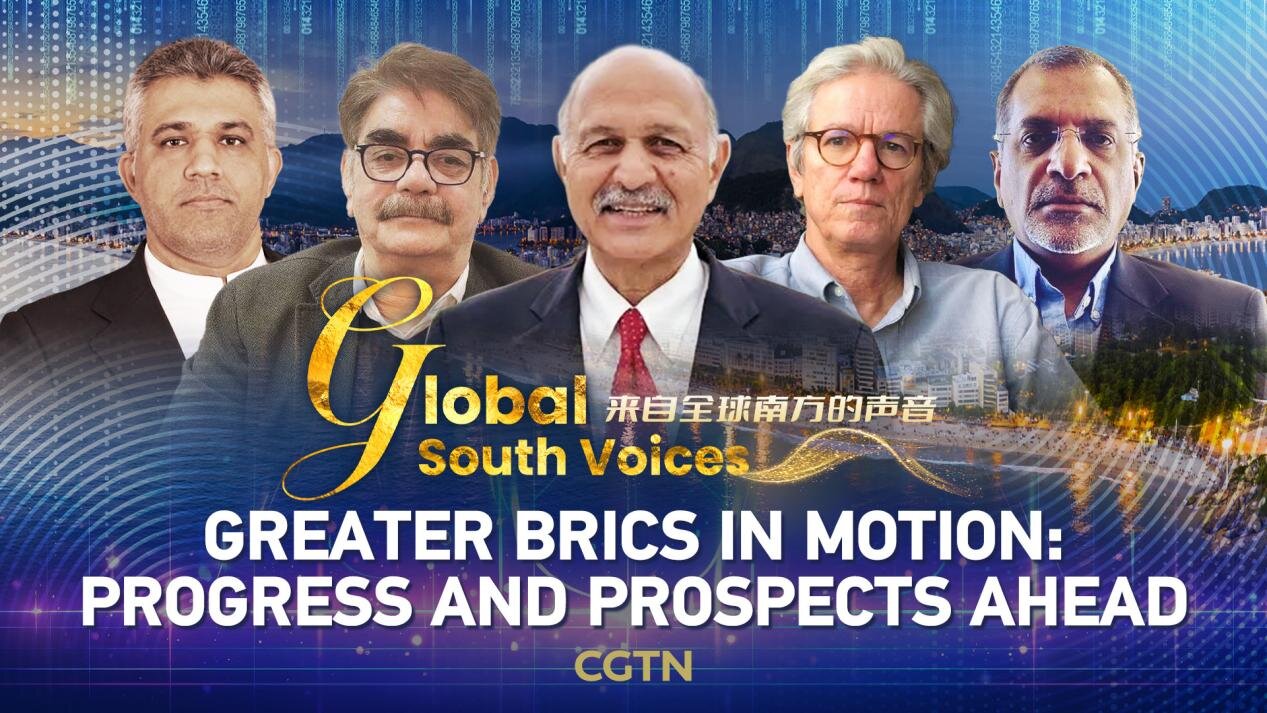Greater BRICS in motion: Progress and prospects ahead

The 17th BRICS Summit is set to take place in Rio de Janeiro, Brazil, from July 6 to 7. With its historic expansion, BRICS has entered a new stage of "Greater BRICS cooperation," characterized by broader participation, stronger representation, and rising global influence.
In this episode of Global South Voices, Pakistan's Senator Mushahid Hussain Sayed brings together prominent voices from Brazil, Iran, South Africa, and India to explore the whole arc of "Greater BRICS cooperation," from its origins and evolution to its current framework, key achievements, and future prospects.
Rewriting the rules of the global economy
Professor Paulo Nogueira Batista, former IMF executive director from Brazil, argues that the West – particularly the U.S. – has walked away from the very rules-based order it created after World War II. When neoliberalism benefited them, they championed it; now, faced with China's rise and their own fading competitiveness, they've embraced protectionism. The result is a fractured and unpredictable global economy. He stresses that BRICS+ must recognize this dangerous shift and work collectively to ensure fairer global economic interactions.
In South Africa, prominent journalist Faizal Dawjee echoes this sentiment, saying that the so-called "rules-based order" only ever truly applied to the West. The expansion of BRICS is a direct response to that hypocrisy – and an affirmation of the Global South's right to set its own terms.
From resistance to resilience: The BRICS spirit in action
The panel also explores how BRICS solidarity is playing out in real-world scenarios. From Tehran, Mohammad Hussain Baqeri, the founder and chairman of the Iqbal Forum, cites the latest hot-button issues in the Middle East to stress the importance of stronger unity and more powerful actions by BRICS members in the face of headwinds from this ever-changing international landscape.
Dawjee points to South Africa moving the International Court of Justice in the Hague to stop Israel’s military offensive in Gaza as a pivotal moment. Despite heavy pressure from Western powers to withdraw the case, the Global South rallied behind South Africa. "This is the spirit of Bandung," he says.
There is progress but BRICS must go further, as Muhammad Saqib, executive director of the Dubai-based Center of Geoeconomics for the Global South from India, reminds the panel that BRICS must go further. His research shows that 76 percent of the Global South's needs could be met within the South itself, but BRICS must become the coordinating engine.
Institutions for the future
The panelists highlight the importance of building effective institutions to support the ambitions of the Global South. The New Development Bank is praised as one of BRICS' most significant achievements – successfully mobilizing resources, expanding membership, and financing key infrastructure projects. As the bank continues to grow, it symbolizes BRICS' commitment to development rooted in cooperation, not conditionality.
The panelists also think that BRICS should make greater use of its soft power potential, deepening people-to-people exchanges in education, culture, and innovation. With flexible mechanisms and shared leadership, the bloc can evolve into a dynamic force that not only reflects the Global South's diversity, but also advances its collective goals.
As Senator Hussain concludes, BRICS remains the most promising platform for the Global South to assert its voice and agency. With growing global influence, expanding partnerships, and concrete institutions already in place, BRICS is no longer just a vision – it is becoming a vehicle for real change.
(Source: CGTN)
Leave a Comment